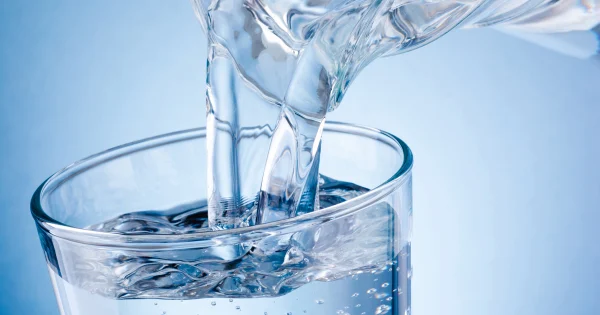Hydration and Its Role in Maintaining Health
Water is essential for life and plays a vital role in maintaining overall health and well-being. Proper hydration supports bodily functions such as temperature regulation, nutrient transport, and waste elimination. Despite its importance, many people fail to drink enough water daily, leading to dehydration and related health issues. Understanding the significance of hydration and adopting strategies to maintain fluid balance can significantly improve physical and mental performance.
The Importance of Water for the Body
Water makes up approximately 60% of the human body and is involved in nearly every physiological process. It aids in digestion, regulates body temperature, lubricates joints, and supports cellular function. Staying adequately hydrated enhances physical performance, boosts energy levels, and promotes healthier skin. It also helps in flushing out toxins, reducing the risk of kidney stones and urinary tract infections.
Key Functions of Water in the Body
| Function | Description |
|---|---|
| Temperature Regulation | Maintains body temperature through sweating and evaporation. |
| Nutrient Transport | Carries essential nutrients and oxygen to cells. |
| Joint Lubrication | Keeps joints and tissues lubricated, preventing stiffness and pain. |
| Waste Removal | Flushes out toxins and waste products through urine and sweat. |
| Cognitive and Physical Performance | Supports brain function, focus, and physical endurance during activities. |
Recognizing Signs of Dehydration
Dehydration occurs when the body loses more fluids than it takes in, leading to an imbalance that can affect physical and mental performance. Common signs of dehydration include increased thirst, dry mouth, and darker-colored urine, indicating concentrated waste due to insufficient water intake. Other symptoms may include fatigue, dizziness, headaches, and muscle cramps, which occur as the body struggles to regulate temperature and circulation. Severe dehydration can cause confusion, rapid heartbeat, and fainting, requiring immediate medical attention. Monitoring hydration levels, especially during physical activity or in hot weather, is essential for preventing dehydration. Consuming water-rich foods and beverages throughout the day and paying attention to early warning signs can help maintain proper hydration and overall health.
Common Symptoms of Dehydration:
- Thirst and Dry Mouth – An early indicator that the body needs water.
- Dark Yellow Urine – A sign of concentrated urine due to low fluid intake.
- Fatigue and Dizziness – Caused by reduced blood volume and oxygen flow.
- Headaches – Often triggered by reduced fluid levels affecting brain function.
- Muscle Cramps – Resulting from electrolyte imbalances.
- Dry Skin and Eyes – Indicating a lack of moisture and hydration.
Strategies for Staying Hydrated
Staying hydrated is crucial for maintaining overall health, energy levels, and proper body function. One of the most effective strategies for staying hydrated is to consistently drink water throughout the day, rather than waiting until you’re thirsty. It’s important to create a hydration routine by setting reminders or carrying a water bottle with you wherever you go, ensuring you always have access to water. Additionally, incorporating hydrating foods like fruits and vegetables into your diet, such as cucumbers, oranges, and watermelon, can provide extra moisture. For those who engage in intense physical activity, it’s essential to increase fluid intake before, during, and after exercise, as sweat and energy expenditure lead to greater water loss.
Electrolyte-rich drinks can also help replenish minerals lost through sweat, but it’s important to be mindful of added sugars in some sports drinks. Drinking small amounts regularly, rather than large amounts all at once, helps the body absorb the water more effectively. Moreover, monitoring your urine color is a simple but effective way to gauge hydration; pale yellow urine generally indicates adequate hydration. In warmer climates or during hot weather, it’s even more important to stay hydrated by adjusting fluid intake according to environmental conditions. Finally, incorporating herbal teas or infused water with a splash of lemon or mint can add variety to your hydration routine and make it more enjoyable, helping you stick to your hydration goals long term.
Tips for Staying Hydrated:
- Carry a Water Bottle – Keep a reusable bottle with you to encourage regular sipping.
- Set Reminders – Use alarms or hydration apps to prompt water breaks throughout the day.
- Infuse Water with Flavor – Add fruits, herbs, or cucumber slices to make water more appealing.
- Drink Before Meals – Having a glass of water before eating can also aid digestion.
- Monitor Urine Color – Aim for pale yellow urine as an indicator of proper hydration.
- Eat Water-Rich Foods – Include fruits like watermelon, oranges, and cucumbers in your diet.
Staying hydrated offers numerous long-term health benefits. It improves energy levels, reduces the risk of chronic conditions like kidney stones and urinary infections, and supports healthy skin. Hydration also enhances athletic performance by preventing muscle fatigue and cramps. Over time, adopting healthy hydration habits leads to better focus, productivity, and overall well-being.
Hydration is a cornerstone of maintaining good health and optimal performance. By understanding the role water plays in the body, recognizing dehydration signs, and implementing strategies to stay hydrated, you can support your health and vitality. Start prioritizing hydration today and experience the lasting benefits it brings to your life.

